MUKURUKURU MEDIA TRIBUTE
So long, Sis’ Debs — a fond farewell to gospel singer Deborah Fraser
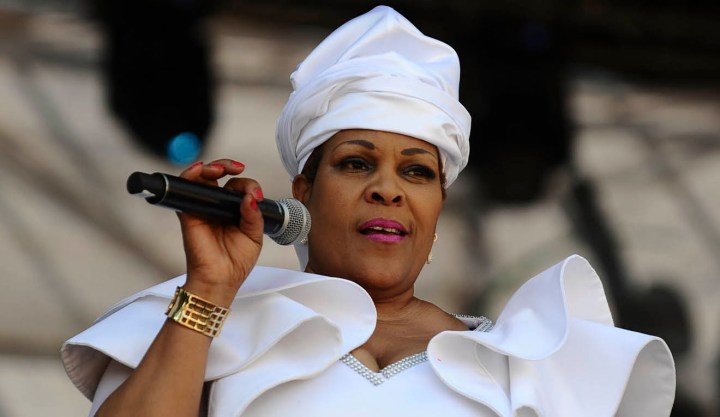
Gospel star Deborah Fraser, who recently died at the age of 55 in a Johannesburg hospital, was a philanthropist who loved children. Journalist Zakhele Diamante Shiba worked briefly as Fraser’s tour manager. Here, he looks back on a 20-year friendship that started with an exposé.
The timing of award-winning gospel singer and producer Deborah Fraser’s death from complications resulting from a stroke caught me completely offside. We were supposed to celebrate 21 years of our friendship and it was my daughter, ZamaNkwali Aaliyah Shiba’s 16th birthday on 15 May, when Sis’ Debs, as I called her, took her last breath.
Fraser’s second-born daughter is also named Aaliyah.
When she was pregnant, a gynaecologist had told her she was expecting twin girls. Sis’ Debs promptly named the unborn twins Aaliyah and Alicia. But it later turned out the gynaecologist had got it wrong – there was only one girl. Fraser named her Aaliyah – after the late US singer and actress.
Her son, Nkosana, was born in 1999 while she was working on her debut album Abanye Bayombona which, over the years, has sold more than a million copies – a rare feat for a debut gospel artist.
In 2000 she worked on the Sello “Chicco” Twala project of Maria le Maria, which was titled Mbulali Wami. The Maria le Maria quartet comprised award-winning and best-selling gospel artists Brenda Fassie and Lundi Tyamara.
The quartet was completed by Deborah and Peter Mokoena of Pure Magic fame.
All four members who were part of Maria le Maria have passed on. Then in 2001, while I was listening to Fraser’s album Abanye Bayombona, I realised there was something uncanny about her work.
In all the 13 tracks I listened to, over and over again, all I could hear was pop star Brenda Fassie singing gospel music.
Why would Brenda release a gospel album titled Abanye Bayombona after she had released a monster hit, Memeza, during the festive season of 1998?
The Chicco Twala-produced album, which contained the hit song Vulindlela, sold over a million copies within six months.
This was the beginning of a mystery that I had to solve, unwittingly so. The common factor in both albums was Chicco Twala’s involvement.
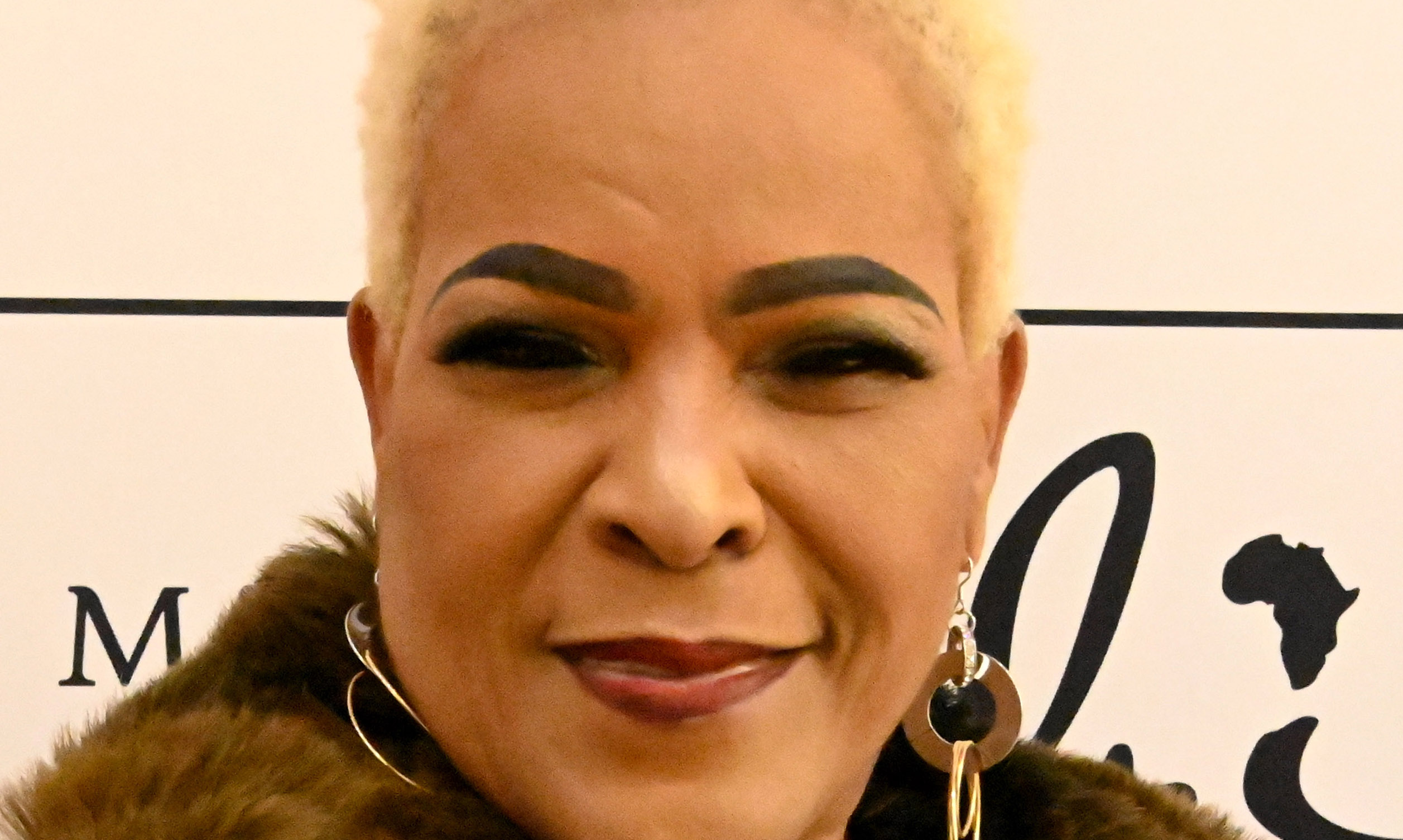
Deborah Fraser at the SA Fashion Week SS21 Digital Collections at the Mall of Africa on 30 April 2021 in Midrand, South Africa. (Photo: Gallo Images / Oupa Bopape)
In Abanye Bayombona, Chicco produced the opener, Uma Kungenxa. In the fourth song, Uma Kungenxa (choir mix), Fraser collaborated with another gospel giant, Vuyo Mokoena, who has also since passed on.
Why would one artist sing on two albums using different names? The red flags were there – either Fraser or Brenda was taking us for a ride.
I called Fraser on her home phone in Bez Valley, east of Joburg, and explained that I was reviewing her new album. I was upfront with her – that I was taken aback that she sounded exactly like the legendary Brenda Fassie.
“Zakhele, please come home to Bez Valley so that I can explain everything to you,” she said.
I didn’t need a second invitation. I told my editor at Sunday Sun – then, Phalane Motale – that I may have uncovered a local version of Milli Vanilli.
Milli Vanilli was a German R&B duo that was caught in a lie after lip-syncing on the track Girl You Know It’s True. After the scandal broke, they were forced to return the Grammy they had won through their crooked scheme.
In the interview, Fraser shocked me to the core.
“I sang for Brenda Fassie on her album, Memeza,” she said.
Her then hubby, taxi boss Fani Kubheka, supported her claim. She said the reason she sang on Brenda’s “behalf” was because, when the festive album Memeza was recorded, Brenda had already developed a drug problem.
At times she couldn’t get to the studio to record. And that was when Chicco Twala used Fraser as a stop-gap.
The plan worked wonders, since Memeza became a huge album released under CCP Records.

Deborah Fraser during the Samas on 27 May 2017 in Sun City, South Africa. (Photo: Gallo Images / Oupa Bopape)
However, Chicco flatly denied the allegations. A feisty Fraser stood her ground. She didn’t allow Chicco to bully her into retracting the claims.
Chicco maintained that they had only used Deborah during the recording as a guide voice because Brenda was sick at the time.
That marked the beginning of our friendship. When I quit the media to work in the music industry, I worked briefly with Deborah as her tour manager.
In all her shows, I’d ask her to perform my favourite song, Imvuselelo, off the album Abanye Bayombona.
When she recorded her follow-up album, Ngikuxolele, she featured the late Soul Brothers crooner, David Masondo, on the title track Ngikuxolele.
Sis’ Debs played a peacemaker between me and Masondo. I had previously written a story that Masondo wasn’t impressed with. We smoked a peace pipe with Masondo because of her motherly love for both of us.
Not only that, she also played peacemaker when she asked fellow singer Khanyo Maphumulo to cooperate with me when I wrote a story revealing that she was expecting a love child with singer Joe Nina, who was married at the time.
The motherly figure often came out during shows when mostly male members would gallivant with women before their performance.
One day she said to a band member: “It looks like you have umakoti [bride] wherever we go and perform across the country.
“Just be careful because we may end up leaving you behind. Then you’ll have to hike all the way to Joburg,” she said at one performance in the Free State.
On her second album, Deborah also featured her friend Vuyo Mokoena, once again, on the song Kena Morena.
She gave me an opportunity to co-write a song, Ukulibon’ Izulu, on her second album, Ngikuxolele.
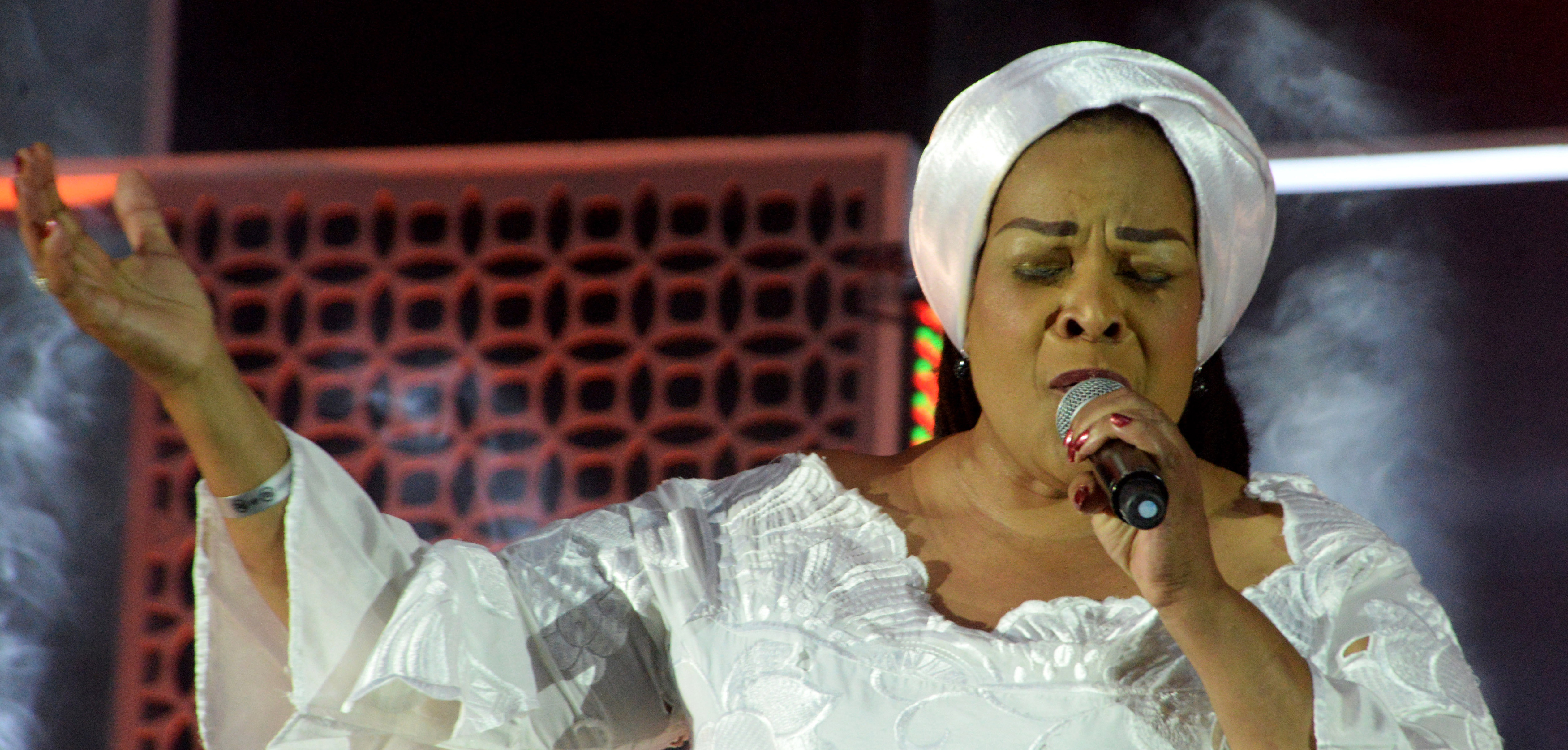
Deborah Fraser during the South African Music Awards nominees announcement at the Alberton Civic Centre on 25 April 2019 in Johannesburg, South Africa. (Photo: Gallo Images / Oupa Bopape)
Fraser always wanted to discover new talent, hence she registered her own label, aptly naming it Abanye Bayombona Productions.
She helped to shape the music careers of a few gospel artists, including the award-winning musician Babo Ngcobo, when he stayed briefly in Joburg.
She also recorded and produced her three female backing singers, Nomcebo Zikode, Nelly Kunene and Khumbuzile Cele. The Afro-pop trio was known as 2LADU, but their album was never released.
Nomcebo Zikode is known worldwide for her song Jerusalema, in which she does vocals for Master KG.
Her two other protégés, Mdu Ntombela and Lucky Dumakude, have gone on to make names for themselves. Ntombela is a member of Durban-based Afro-Pop duo Malini. Dumakude, who joined the SABC TV show Gospel Gold, is now a businessman involved in construction.
When she was diagnosed with diabetes a few years ago, Deborah told me she wouldn’t let the illness take control of her life. She changed to healthy eating. When I visited her in hospital in March, she asked that I join her in sharing eisbein she had bought at an eatery near Soweto Towers.
“Today I’m breaking the law by eating food not on the hospital menu,” she laughed.
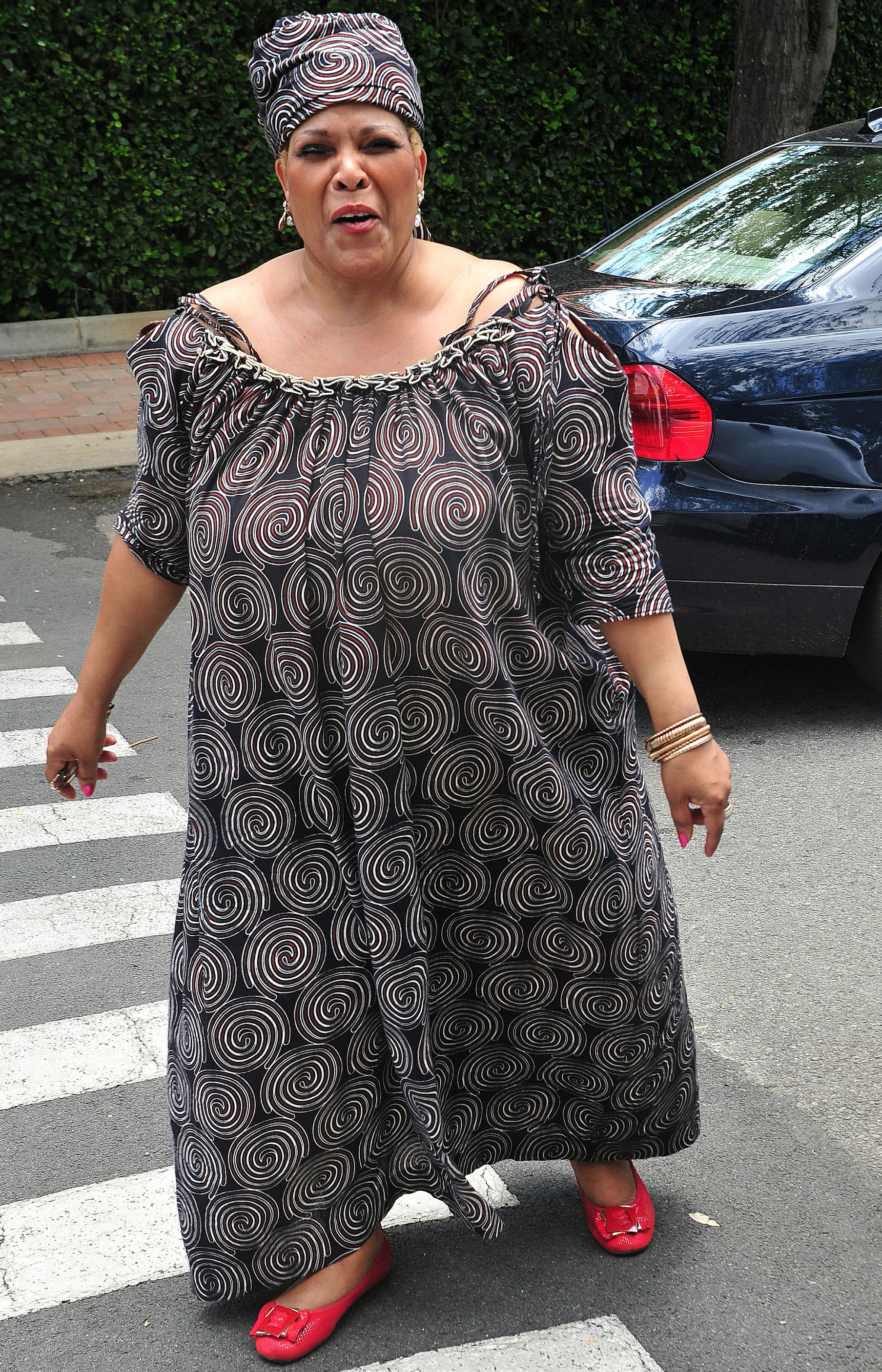
Gospel singer Deborah Fraser visits the Ncwane family after the death of Gospel star Sfiso Ncwane on 6 December 2016 in Johannesburg, South Africa. (Photo: Gallo Images / Sowetan / Veli Nhlapo)
Since 2020, she had planned that I must write a book about her life, but she became busy.
We had actually done a bit of writing where she told me about her life touring America and other countries with musicians such as Jonas Gwangwa, Hugh Masekela, Lucky Dube and others.
At the time, she was recording the single, Sxolele Baba. She formed an all-female group called Omama Besizwe (Mothers of the Nation) with fellow artists Yvonne Chaka, Vicky Vilakazi, Faith Khanyile, Thabile Myeni, Buhle Nhlangulela, Siphokazi and Nomcebo Zikode.
Our friendship led Deborah to meeting my entire family. She would have deep conversations with my mother, Thandekile Shiba, when she visited her in Diepkloof, Soweto.
We became family, and she was always fascinated by the fact that our daughters shared the name Aaliyah.
A philanthropist of note, she was known for feeding the poor, and took care of the young ones. Sis’ Debs, who I also called MaMkhokheli, moved out of Bez Valley after her failed marriage to Sockey Okeke from Nigeria.
She bought a plot in Joburg south. She planted her own vegetables, and at times played Mother Teresa, along with members of Omama Besizwe, by donating vegetables and other food parcels to the needy.
In 2020, she was left devastated when her guesthouse was cleaned out during a robbery in the middle of the night.
The thugs were apparently driving a truck, and before ransacking the house, they poisoned her dogs. They died on the spot. From then on, her health started to deteriorate.
When I visited her at Chris Hani Baragwanath Academic Hospital between February and March this year, she cried on the first day I entered the ward.
“Zakhele, I’m going to die. What will happen to my children? They need me more than anyone else at this time.”
After spending less than an hour chatting, she asked that I tell my 82-year-old mother to pray for her.
Since our friendship started more than 20 years ago, Deborah has never turned down any journalist who wanted to write a story about her – be it a negative or positive story.
Deborah was born on 9 June, 1966. She was always fascinated by the fact that we were both Gemini, since I was born on 2 June.
We never forgot to send each other best wishes on our birthdays since our big days were just a week apart. She would have turned 56 in just a few days.
So long, Sis’ Debs. DM
This story first appeared in our weekly Daily Maverick 168 newspaper, which is available countrywide for R25.
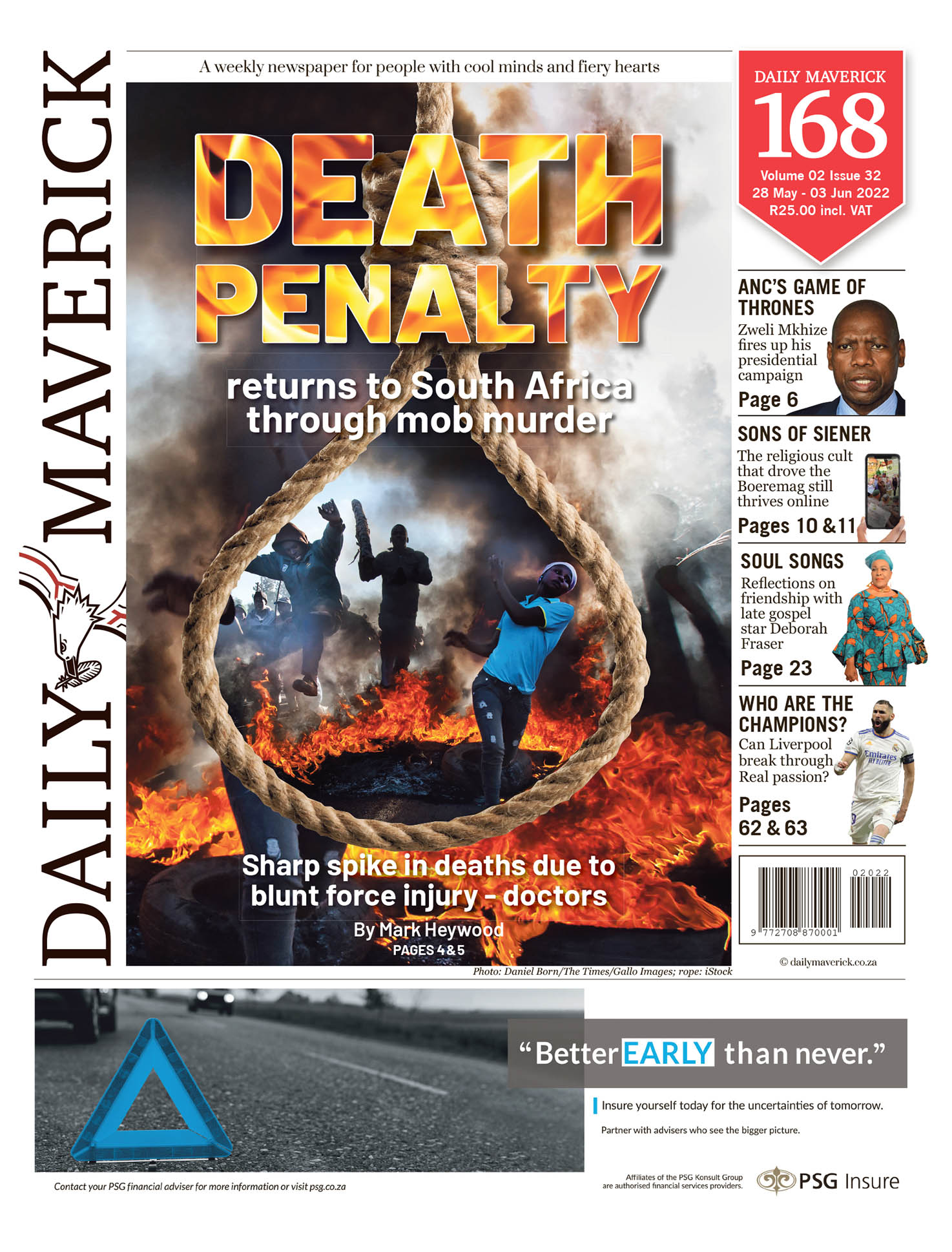



















 Become an Insider
Become an Insider
Comments - Please login in order to comment.